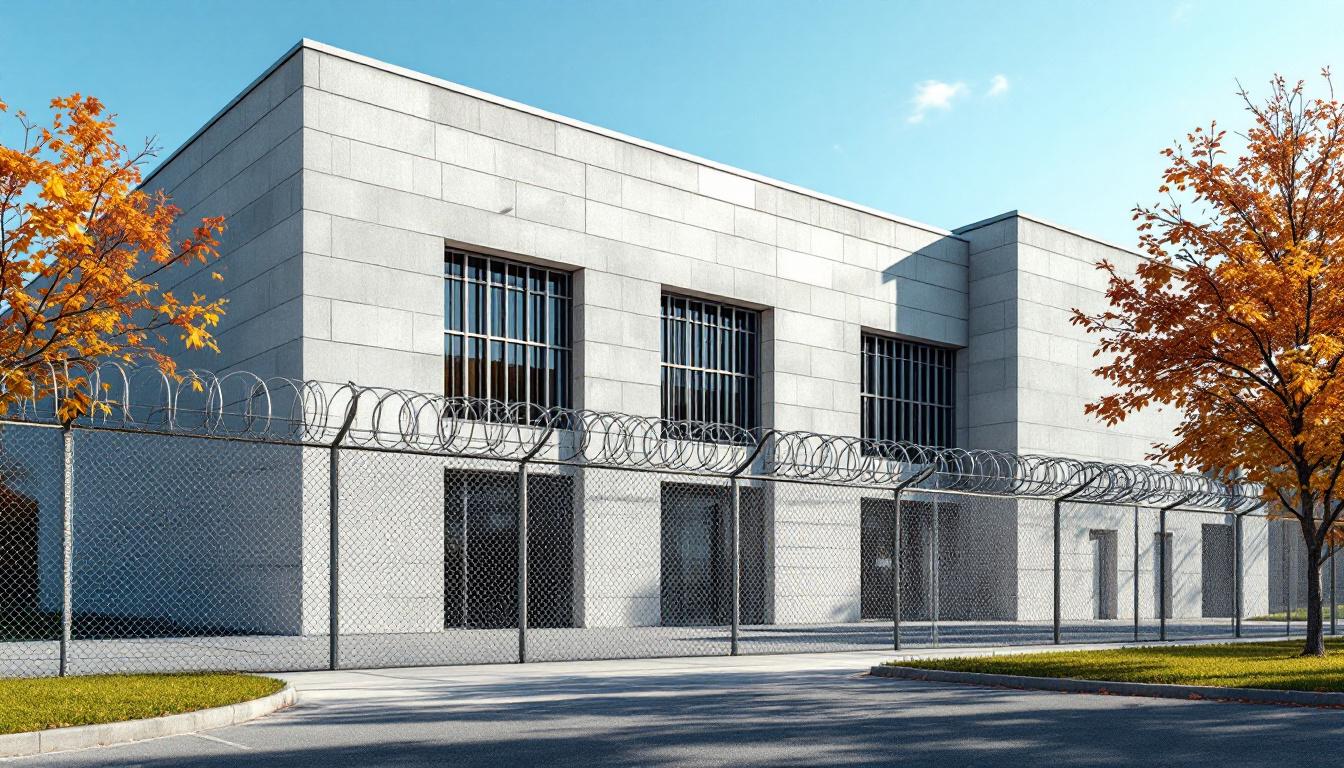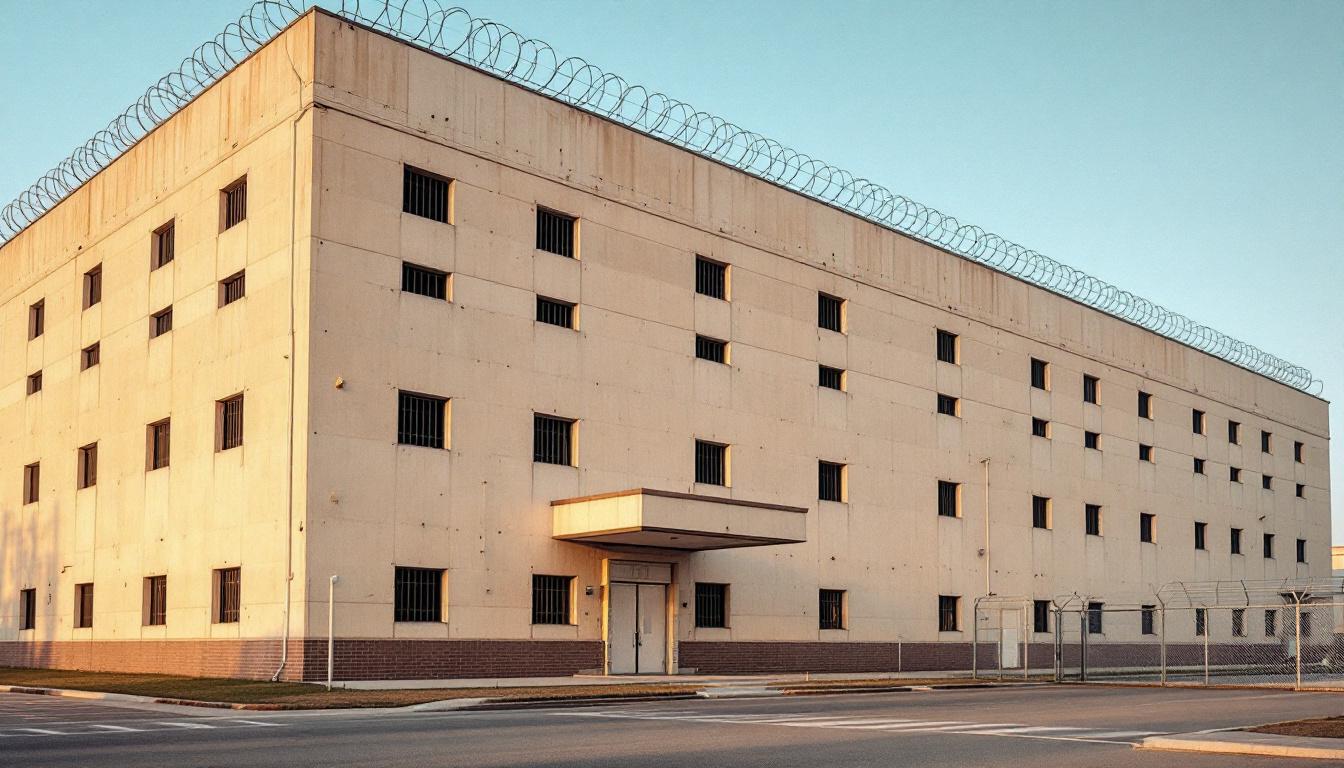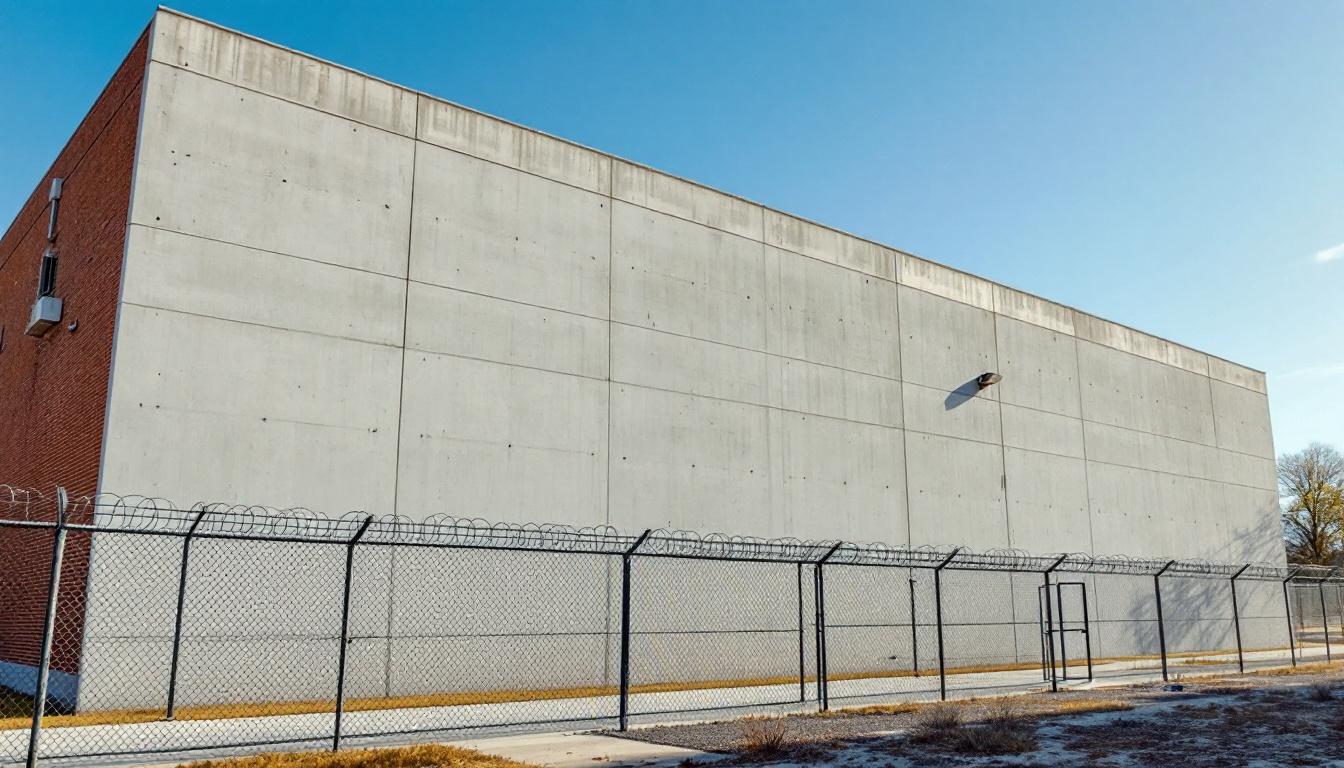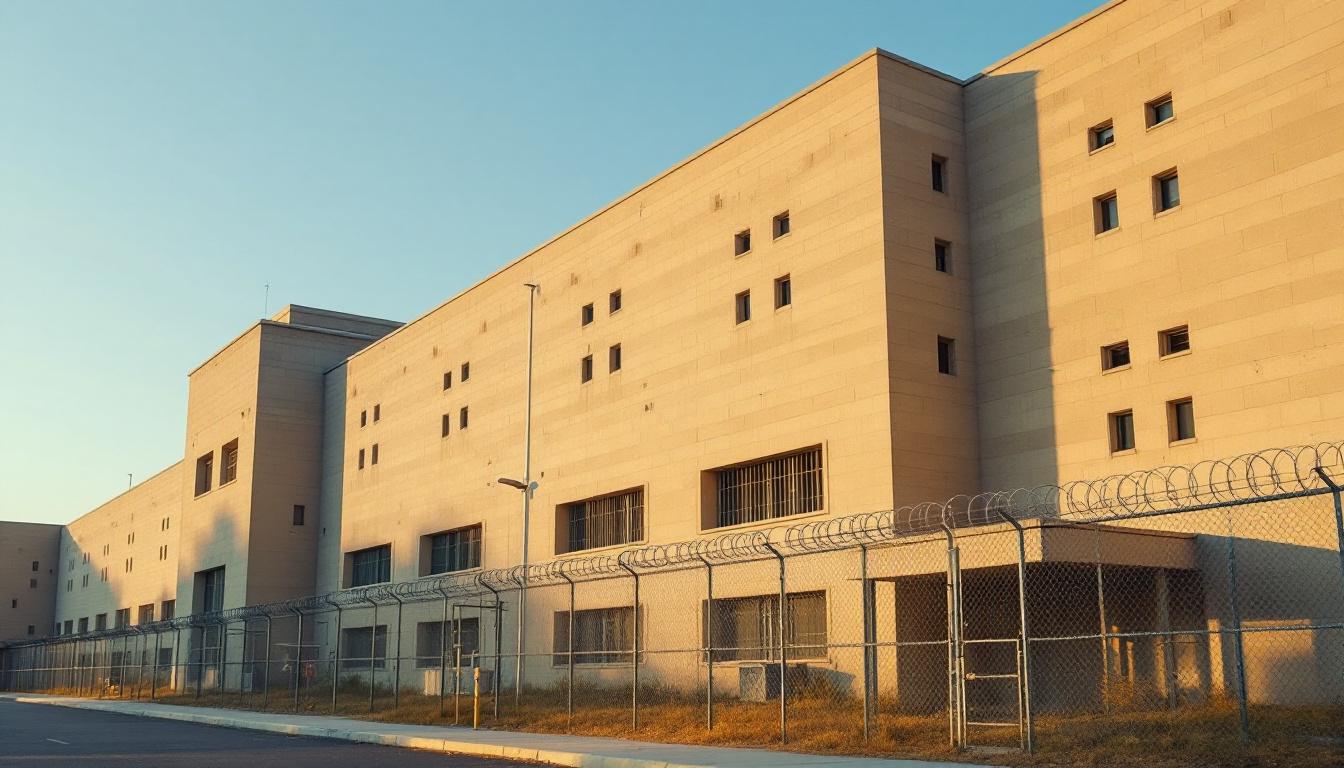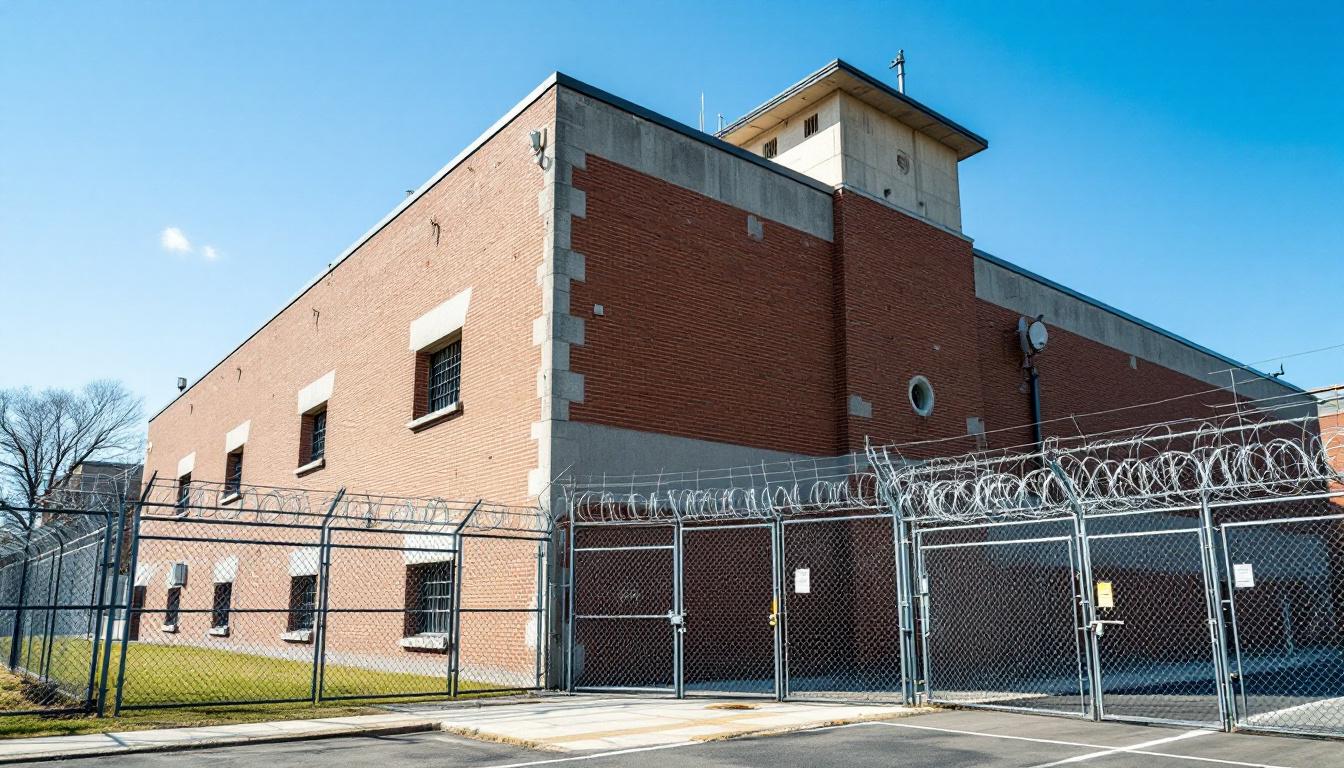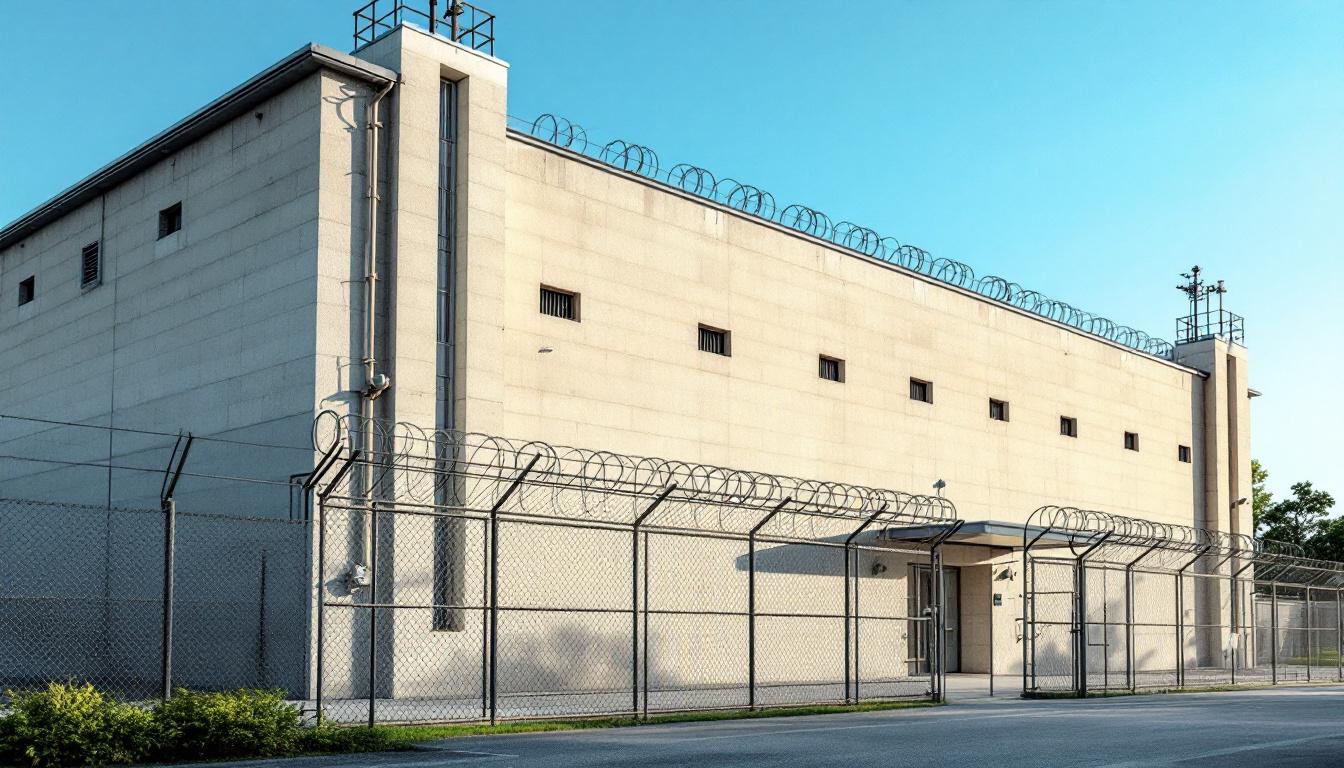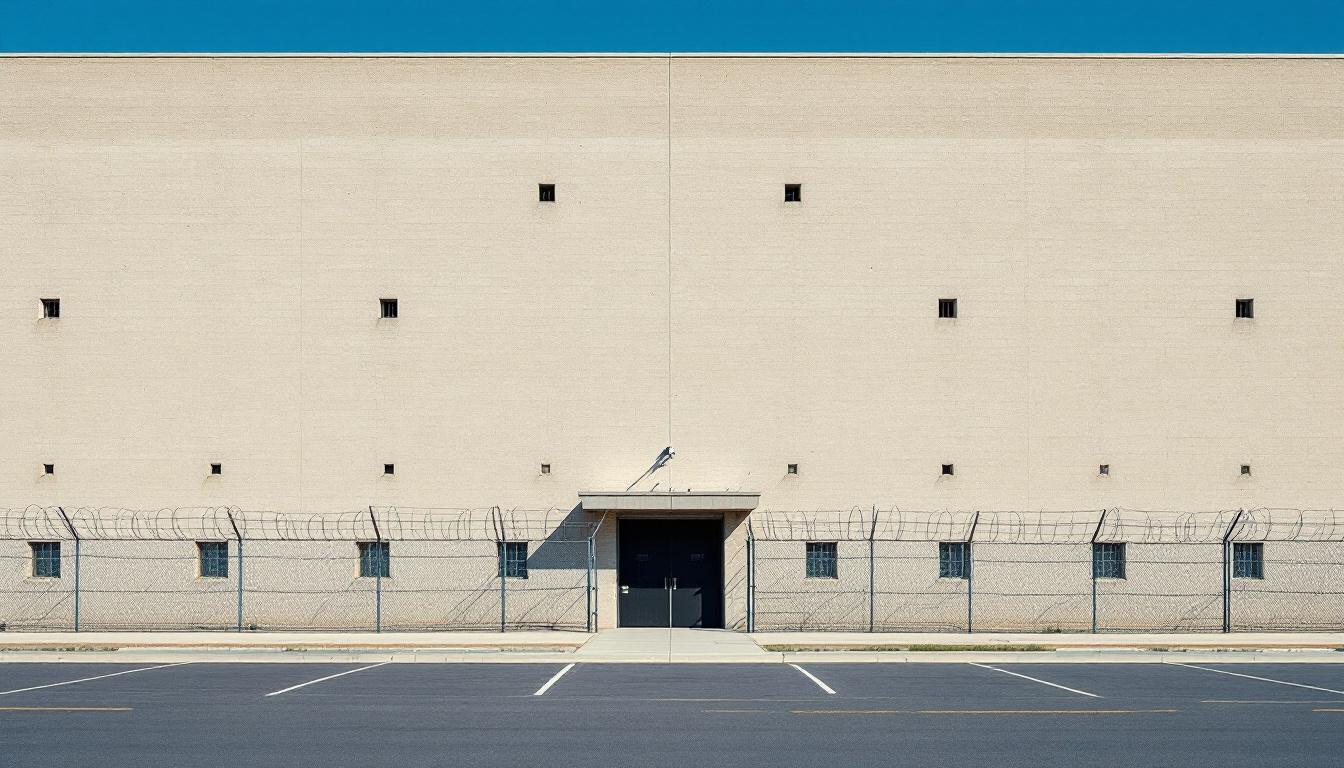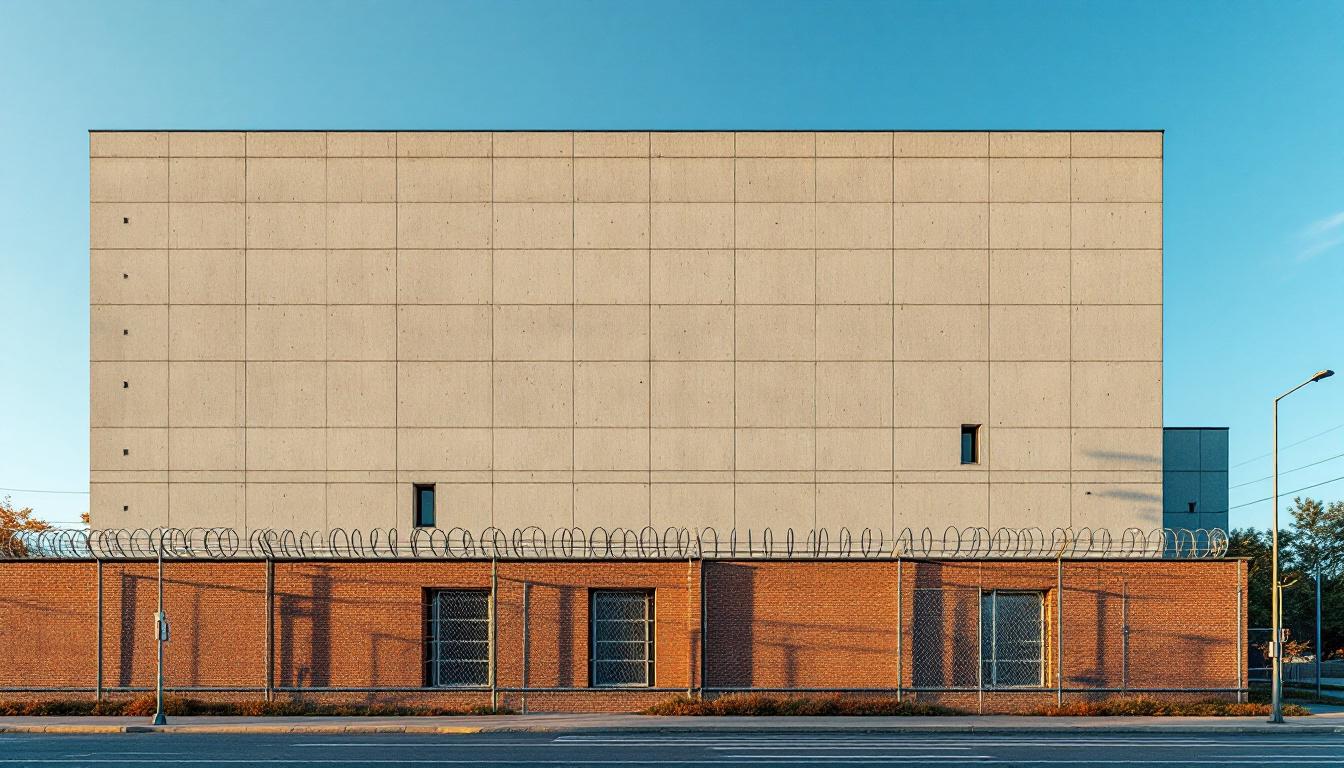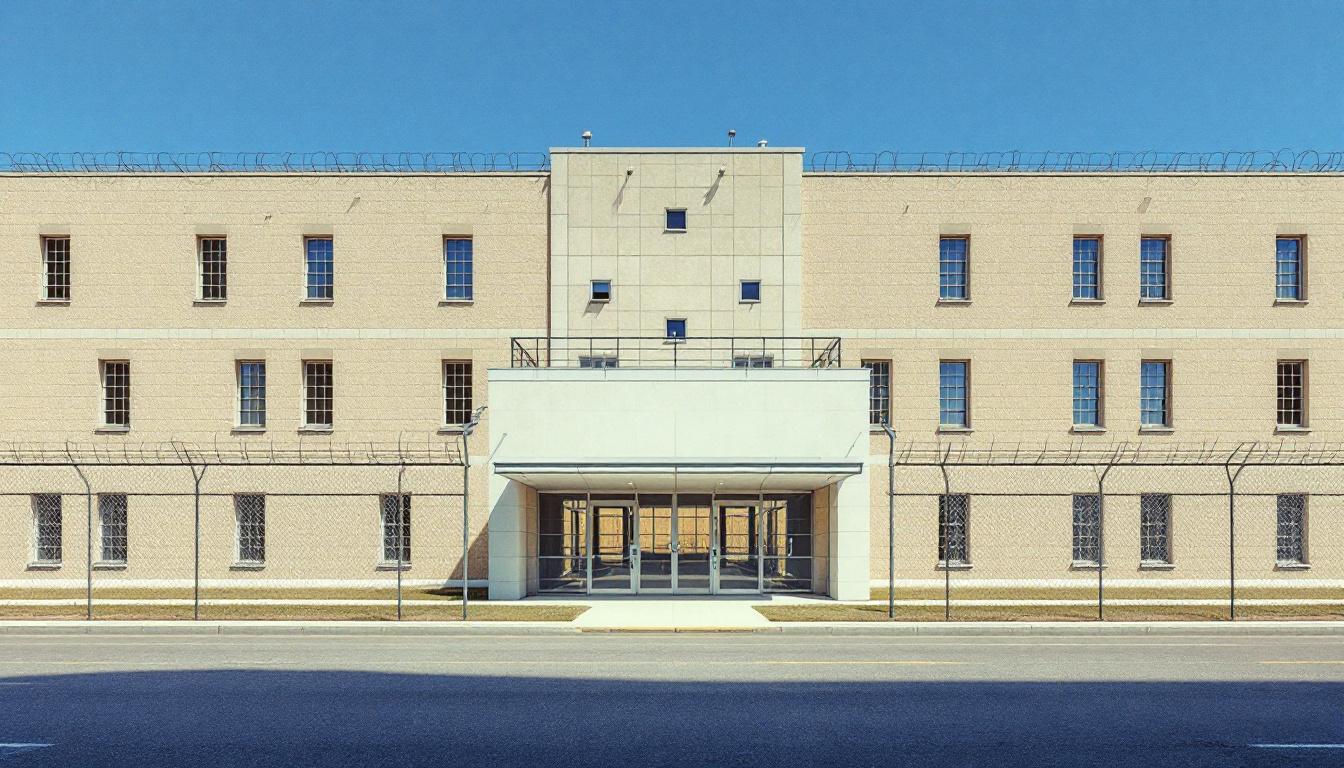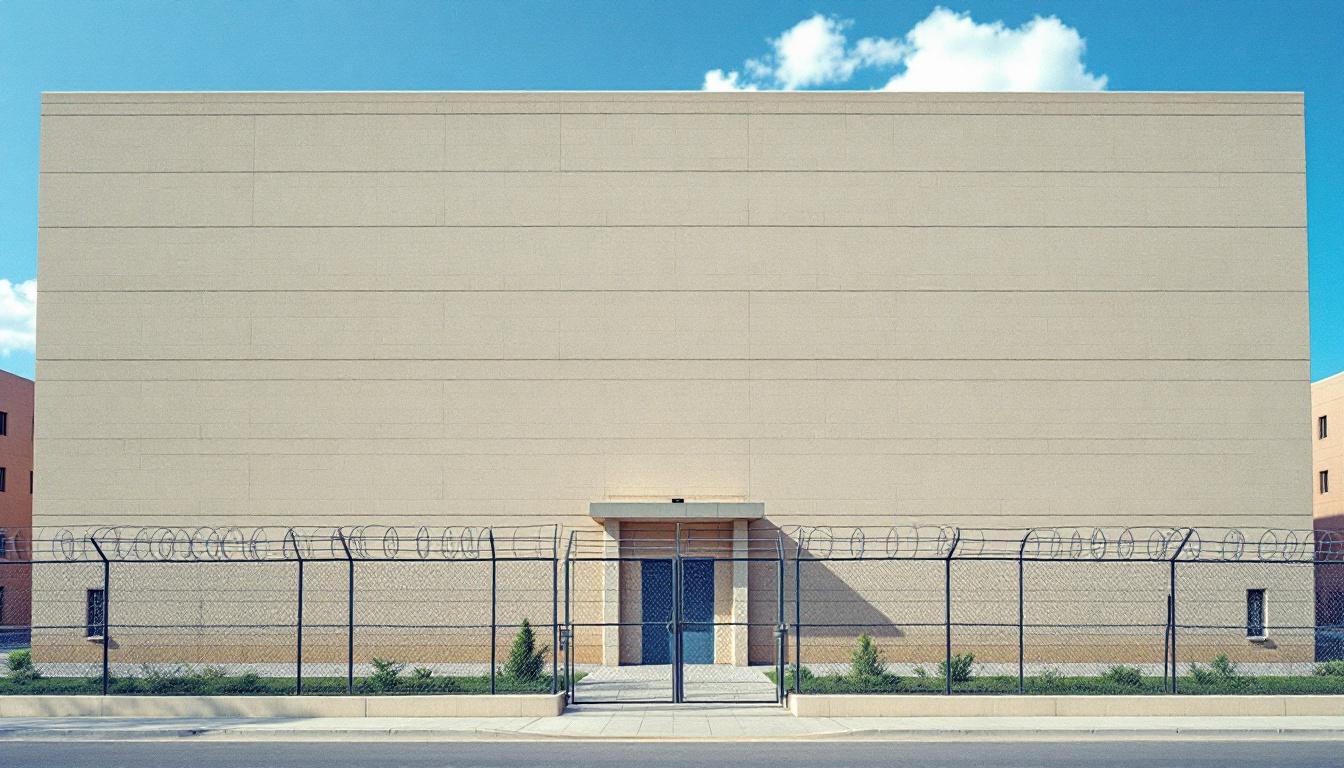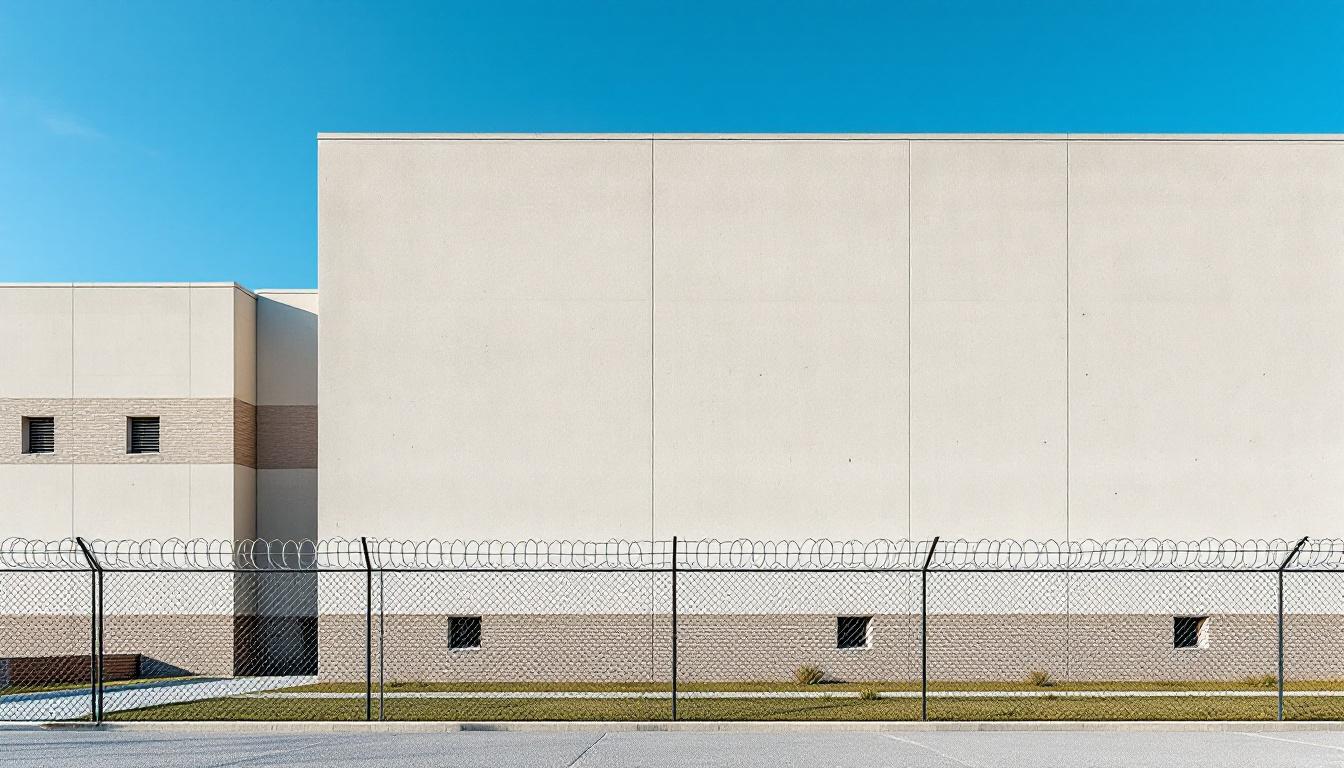
Quick Navigation
How to contact an inmate at Martin Correctional Institution
This comprehensive guide will walk you through how to connect with an inmate at Martin Correctional Institution. Follow the steps below to find an inmate and send letters and photos:
- Search for the inmate using our search tool below
- Create your account or log in to Penmate
- Write your message (up to 6,000 characters)
- Send instantly - inmates receive printed copies daily
Find an Inmate
Search for an inmate to start communicating today
Tip: You can search by first name, last name, or inmate ID number
To contact a person at Martin Correctional Institution start by searching for the person on the official facility website. Perform a search by following these steps:
- Step 1: Enter their first name and last name into the search form and click "Search"
- Step 2: Locate their inmate record
- Step 3: Write down their Inmate ID and any housing information provided
Important! Be sure to enter the person's full name. Nicknames should not be used.
How to Send Messages to Inmates

You can use your phone or computer to send emails, letters, and photos to an inmate. Messages are sent electronically to inmate tablets or kiosks at the facility. If you would like to send a message, start by searching for an inmate at Martin Correctional Institution.
Sending Photos and Postcards

A great way to send love and support to a loved one at Martin Correctional Institution is to send photos and postcards. It only takes a few minutes to send photos from your phone and it makes a huge difference. You can also mail postcards with words of support and inspiration, or design your own postcard for special moments like birthdays and holidays.
Important! Be sure not to send any explicit photos or they may not be approved by the facility. You can also use a photo printing app like Penmate to make sure your photos are printed at the correct size (4x6 or 3x5) and are mailed according to the rules and regulations of Martin Correctional Institution.
Frequently asked questions about Martin Correctional Institution
-
How long does it take to deliver a message?
If you're sending an email message your letter is usually delivered within 24-48 hours. For messages sent via mail you should expect delivery within 3-7 days. All messages will need be approved by Martin Correctional Institution.
-
How much does it cost to send a message to Martin Correctional Institution?
You can send a message free using your phone or mail a message via USPS for the price of a $0.60 stamp and envelope. You can also purchase credits or e-stamps from services starting at $1.99.
-
What services can I use to contact an inmate at Martin Correctional Institution?
Penmate
You can use Penmate to send letters and photos to an inmate from your phone. It's an easy way to stay in touch during your loved one's incarceration. Use the inmate locator to find an inmate's location and contact information, then you can send messages within a few minutes.
Securus messaging
Securus may be another option for communicating with an inmate at Martin Correctional Institution. You can create a friends and family account and purchase credits to send messages. All messages will be reviewed and must be approved by the facility.
JPay
Some county jails and state prisons may support sending messages with JPay. You must register an account with the system, find your loved one, and purchase stamps to send messages. For some locations you can also attach photos.
Smart Jail Mail
You may also check if Smart Jail Mail is available at Martin Correctional Institution. Smart Jail Mail is operated by Smart Communications and has contracted with some state and county jails. After purchasing credits, your messages and photos are sent to the facility, printed out, and then handed out to your loved one.
-
What is the mailing address of Martin Correctional Institution?
Mailing address:
Martin Correctional Institution
1150 SW Allapatah Rd
Indiantown, FL 34956
Phone: (772) 597-3705 -
What are the visiting hours at Martin Correctional Institution?
Visiting hours at Martin Correctional Institution vary by housing unit and security level. Generally, visits are scheduled on weekends and holidays, with some facilities offering weekday visits. Contact the facility directly at (772) 597-3705 or check their website for the current visiting schedule. Visits typically last 30-60 minutes and must be scheduled in advance.
-
What items are prohibited when sending mail to Martin Correctional Institution?
Prohibited items typically include: cash, personal checks, stamps, stickers, glitter, glue, tape, staples, paperclips, polaroid photos, musical or blank greeting cards, hardcover books, magazines with staples, and any items containing metal or electronics. Only send letters on plain white paper with blue or black ink. Photos must be printed on regular photo paper (no Polaroids). Always check with Martin Correctional Institution for their specific mail policies.
-
How do I send money to an inmate at Martin Correctional Institution?
You can send money to an inmate at Martin Correctional Institution through several methods: 1) Online using JPay, Access Corrections, or the facility's approved vendor, 2) Money orders mailed directly to the facility with the inmate's name and ID number, 3) Kiosks located in the facility lobby, or 4) Over the phone using a credit or debit card. Fees vary by method, typically ranging from $2.95 to $11.95 per transaction.
-
Can I schedule a video visit with an inmate at Martin Correctional Institution?
Many facilities now offer video visitation as an alternative to in-person visits. At Martin Correctional Institution, video visits may be available through services like Penmate, Securus Video Connect, GTL, or ICSolutions. Video visits typically cost $10-20 for 20-30 minutes and must be scheduled in advance. You'll need a computer or smartphone with a camera and reliable internet connection. Contact the facility for their specific video visitation policies and approved vendors.
-
What identification do I need to visit an inmate at Martin Correctional Institution?
All visitors must present valid government-issued photo identification such as a driver's license, state ID, passport, or military ID. Minors must be accompanied by a parent or legal guardian who can provide the minor's birth certificate. Some facilities require visitors to be on the inmate's approved visitation list, which may require a background check. Contact Martin Correctional Institution for specific ID requirements and visitor approval procedures.
-
How can I find out an inmate's release date?
To find an inmate's release date at Martin Correctional Institution, you can: 1) Use the online inmate search tool if available, 2) Call the facility's records department, 3) Contact the inmate's case manager or counselor, or 4) Have the inmate provide this information during a call or visit. For privacy reasons, some facilities only release this information to immediate family members.
Facility Overview
Contact Information
Martin Correctional Institution1150 SW Allapatah Rd
Indiantown, FL 34956
Phone: (772) 597-3705
Official Website

About Martin Correctional Institution
Nestled within the greater Tampa metropolitan area, Martin Corrections Institution, FL operates as an integral component of Florida's comprehensive correctional system, serving the rehabilitation and housing needs of residents throughout the region. This FL correctional facility typically maintains a structured environment designed to balance security requirements with meaningful opportunities for personal development and community reintegration preparation.
The institution generally emphasizes a service-oriented approach to corrections, often collaborating with local Tampa-area organizations to provide residents services that may include educational programming, vocational training opportunities, and substance abuse counseling. These partnerships with community resources help create pathways for residents to develop practical skills and address underlying issues that may have contributed to their incarceration. The facility's programming approach typically focuses on preparing individuals for successful reentry into their communities upon release.
As part of Florida's broader correctional framework, this correctional institution generally maintains connections with regional support networks, faith-based organizations, and educational providers throughout the Tampa area. These collaborative relationships often enable the facility to offer comprehensive rehabilitation services while maintaining its primary security and custody functions within the state's correctional system.
Programs & Services
Rehabilitation initiatives at Martin Corrections Institution typically focus on addressing the underlying factors that contribute to criminal behavior while building practical skills for successful reintegration. The facility's approach emphasizes personal accountability and skill development through structured programming that may deliver both immediate benefits and long-term preparation for release. Residents often participate in multiple initiatives simultaneously, creating a comprehensive support system that addresses various aspects of personal growth and development.
Educational initiatives form a cornerstone of the facility's programming, with residents able to pursue basic literacy, GED preparation, and civic education courses that help them understand their rights and responsibilities as citizens. These programs typically use individualized learning plans to meet residents at their current skill level. In addition to this, vocational training initiatives may include small engine repair instruction, providing hands-on technical skills that often translate directly to employment opportunities upon release. Such programs typically combine classroom instruction with practical application, allowing residents to develop marketable abilities while gaining confidence in their capabilities.
Support services and therapeutic initiatives work together to address behavioral patterns and prepare residents for community reintegration. Substance abuse treatment programs may deliver both individual counseling and group therapy sessions, helping residents develop coping strategies and understand addiction as a treatable condition. Work release initiatives often provide eligible residents with supervised employment opportunities in the community, allowing them to maintain family connections while developing work experience. Victim awareness programs typically help residents understand the impact of their actions on others, fostering empathy and personal responsibility that supports long-term behavioral change.
Daily Life & Visitation
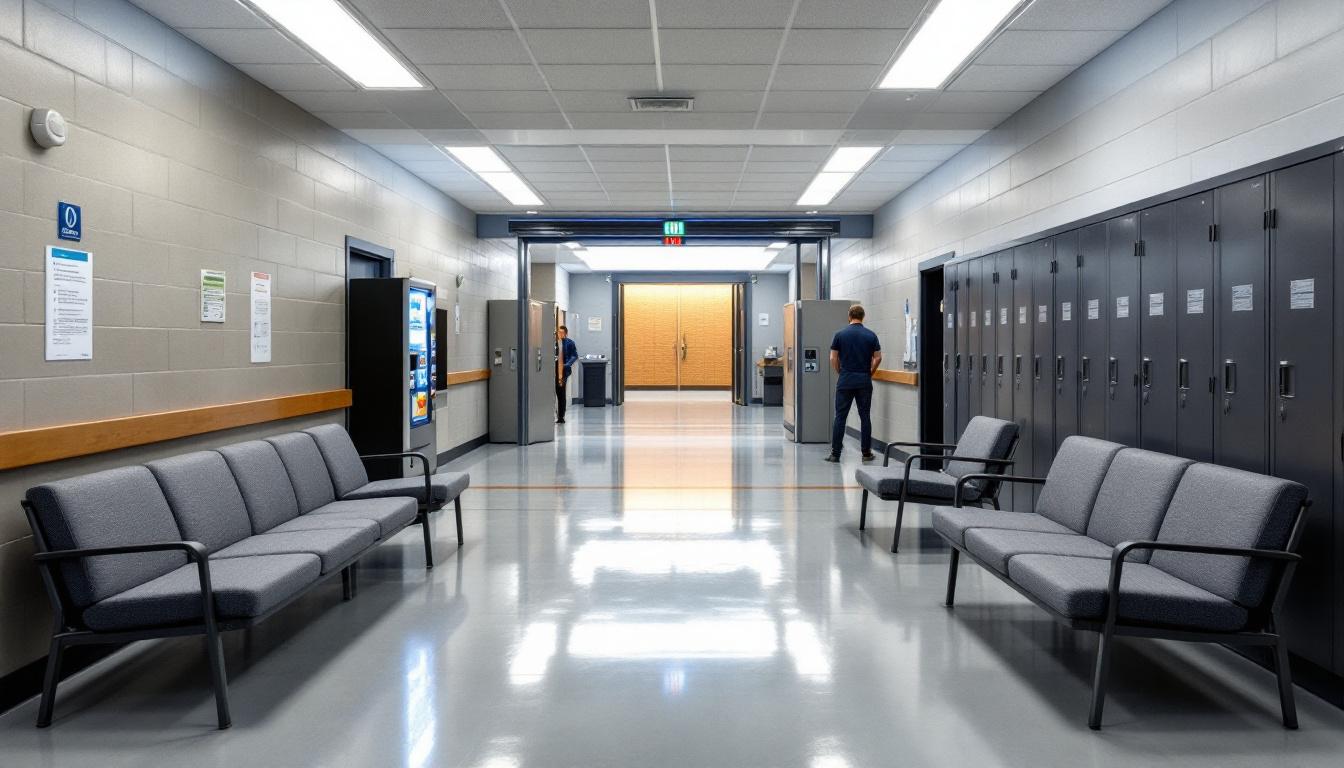
Structure forms the backbone of every day, with residents following established routines that currently provide predictability and continue to create a sense of normalcy within the institutional environment. Wake-up calls typically occur in the early morning hours, followed by count procedures and meal service. The day generally progresses through scheduled activities including work assignments, educational programming, and recreational periods, with residents moving between different areas of the facility according to predetermined schedules that deliver consistency and order.
Housing units accommodate residents in various configurations, with most living in shared cells or dormitory-style arrangements depending on their classification level and security requirements. Meals are typically served in designated dining areas at scheduled times, with residents receiving nutritionally balanced options that meet dietary standards. Personal property allowances usually include basic clothing, hygiene items, and limited personal effects, while commissary services may offer additional items for purchase to supplement daily necessities.
In addition to this structured framework, recreational opportunities often include access to exercise yards, gymnasium facilities, and organized sports activities that promote physical wellness. Work assignments within the facility typically encompass maintenance duties, food service positions, and various support roles that contribute to daily operations while providing residents with routine responsibilities. Despite this institutional setting, family connections remain important through scheduled visitation periods and communication options such as telephone calls and correspondence, helping residents maintain relationships with their support systems outside the facility walls.
Ready to Connect?
Start communicating with your loved one today
Search for an Inmate
